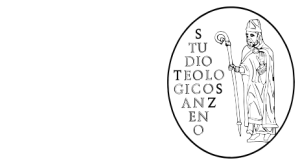Home » Esperienza e Teologia » Rivista »

Numero XXXX
Divenire Chiesa: soggetti e comunità
Gennaio – Dicembre xxxx
Abstract e allegati
Luca MerloFULL TEXT
di Giuseppe AccordiniFull Text
Abstract:
The reflection on the intelligibility of the Church is congruent to post-idealistic philosophy, language and communication. Schelling and the Frankfurt School bring back the sense of temporality and contingency in the relationship between world and absolute. In this context, the appearance of the subject is featured as science of experience of knowledge. The transcendent and the transcendental are always mediated by history of conscience. Abstract language becomes speech and the revelation becomes history. The idea of Kingdom temporalizes God’s self-revelation in Jesus, and the function of the Church. Thus, the Church cannot be deducted based on its mere historical manifestations. Hence, the Church can be said to be founded on Jesus rather than by Jesus, and so the Church is the historical act of dialogue of a God who is present in it in an indirect and exceeding manner. Jesus’s messianism is grounded on him being the Son of God. The Word and the Spirit save the Church from collectivism and individualism. The Church is the sacrament of the Spirit and also the continuous crisis of the Spirit. This means for the Church to become both communication without dominance and reciprocal acknowledgement of the individual identity, avoiding a suffocating collectivism and a freezing individualism which suffocate and freeze all things, including the Kingdom of God.
Sommario:
La riflessione sull’intellegibilità della Chiesa è in sintonia di fondo con la filosofia postidealistica, del linguaggio e della comunicazione postmoderna. Schelling e la scuola di Francoforte recuperano il senso della temporalità e della contingenza nel rapporto del mondo con l’assoluto. L’emergere del soggetto in questo contesto si caratterizza come scienza dell’esperienza della coscienza. Il trascendente e il trascendentale sono sempre mediati dalla storia della coscienza. Il linguaggio astratto pertanto diventa discorso e la rivelazione diventa storia. La figura del Regno temporalizza l’autorivelazione di Dio in Gesù e anche la funzione della Chiesa. La chiesa in questo senso è indeducibile dalle pure manifestazioni storiche irriducibile ad esse. Pertanto, si può dire fondata su Gesù più che da Gesù ed è quindi l’autocomunicazione storica di un Dio che è presente in essa in modo indiretto ed eccedente. Il messianismo di Gesù è fondato sulla sua figliolanza divina. La Parola e lo Spirito sottraggono la chiesa al collettivismo e all’individualismo. La chiesa è il sacramento dello Spirito e anche la perenne crisi dello Spirito. Qu esto comporta che la chiesa diventi comunicazione senza dominio e riconoscimento reciproco anche dell’identità del singolo che sfugge alla collettivizzazione che tutto soffoca e all’individualismo che tutto gela, compreso il futuro del Regno di Dio.





